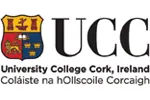

Ireland
University College Cork (UCC)| The award | How you will study | Study duration | Course start | Domestic course fees | International course fees |
|---|---|---|---|---|---|
| BSc (Hons) | Full-time | 4 years | September | EU 3000 | EUR 3000 |
Overview
Are you interested in human rights, health, education and environment in the context of development? Or the UN's sustainable goals and the fight against global hunger and poverty? If so,this programme will be of interest to you.
The BSc International Development and Food Policyis the first undergraduate programme in Ireland to have a primary focus on international development, particularly on the countries of the global south. It will help you understand key issues of development and deliver skills such as languages, research techniques and project management.
In Year 3, you will have the opportunity to undertake a five-month work placement, typically with a development agency based in a developing country in Africa or Asia.
Course Details
The course addresses key challenges in global development:
It aims to:
Year 1
Core modules:
You can also pursue optional courses in languages, health, nutrition or government.
Year 2
Core modules:
You can also pursue optional coursesin languages, health, nutrition or government.
Year 3
Core modules:
A key undertaking in Year 3 is the 24-week work placement: in most cases the placement is overseas in a developing country working with a development organisation.
Year 4
You will write a dissertation on a topic relevant to international development. You will also study modules in:
In addition, you can take optional courses in rural development, co-operatives, markets and social policy, languages, health and government.
See the College Calendar for more detailed information on the programme and the Book of Modulesfor a more detailed description of programme modules.
Fact File
Course Code: CK506
Course Title: International Development and Food Policy
College: Science, Engineering and Food Science
Duration: 4 Years
Teaching Mode: Full-time
Qualifications: BSc (Hons)
NFQ Level: Level 8
Costs: Full-time EU/EEA/Swiss State undergraduate students may be exempt from paying tuition fees. The State will pay the tuition fees for students who satisfy the Free Fees Criteria. In 2016/17 the Student Contribution Charge will be EUR 3,000 and the Capitation Fee will be EUR 165.
2017 Entry Requirements: H5 in two subjects, and O6/H7 in four other subjects in the Leaving Certificate from Irish, English, Mathematics and three other subjects recognised for entry purposes.
Entry Points: 2016: 375
Course Practicalities
Direct contact hours through lectures normally comprise 12 hours per week. In first year, additional tutorials may be scheduled. There is a significant amount of continuous assessment in the course, including through assignments, group projects, in-class presentations. Students are expected to devote sufficient time to reading, preparation of assignments etc, as required in a full-time course.
Overseas placement in 3rd year will cost approximately EUR 3,000 - EUR 4,000 (partial bursaries may be available).
Assessment
Written exams will take place before Christmas and in May. Not all modules will have formal examinations. Many modules use other types of assessment including written assignments, group projects, in-class presentations, and some in-class tests.
The work placement in Year 3 is assessed on a pass/fail basis.
Application Procedure
EU Applicants: Application to Year 1 of the degree programme is made directly through the Central Applications Office (CAO). Applicants should apply online at www.cao.ie. The normal closing date for receipt of completed applications is 1st February of the year of entry.
Non-EU Applicants
Mature Applicants: Application is made through theCAO (www.cao.ie) and the closing date for receipt of completed applications is 1st February of the year of proposed entry.
Further Contact Information
Dr Edward Lahiff
Academic Director
T: +353 (0)21 4903478
Nora Hennessy
Administrative Co-ordinator
T: +353 (0)21 4902114
Brid Drake/Marie Hourigan
Department Executive Assistants
T: +353 (0)21 4902570
E:[email protected]/[email protected]
www.facebook.com/uccinternationaldevelopment/
2017 Entry Requirements: H5 in two subjects, and O6/H7 in four other subjects in the Leaving Certificate from Irish, English, Mathematics and three other subjects recognised for entry purposes.
Entry Points: 2016: 375
Contact University College Cork (UCC) to find course entry requirements.
Below are some suggested courses at other providers that you may also be interested in:
Intellectual Property Law LLM, LLM, LLM
Centre for Commercial Law Studies, Queen Mary University of London
Find out moreIf you do not meet the entry requirements for this course then consider one of these courses from another institution:
There are 338 other courses listed from University College Cork (UCC). A selection of these are displayed below:
Join the StudyLink email list and never miss a chance to turn your study abroad dreams into reality!

Find out more about studying in Ireland